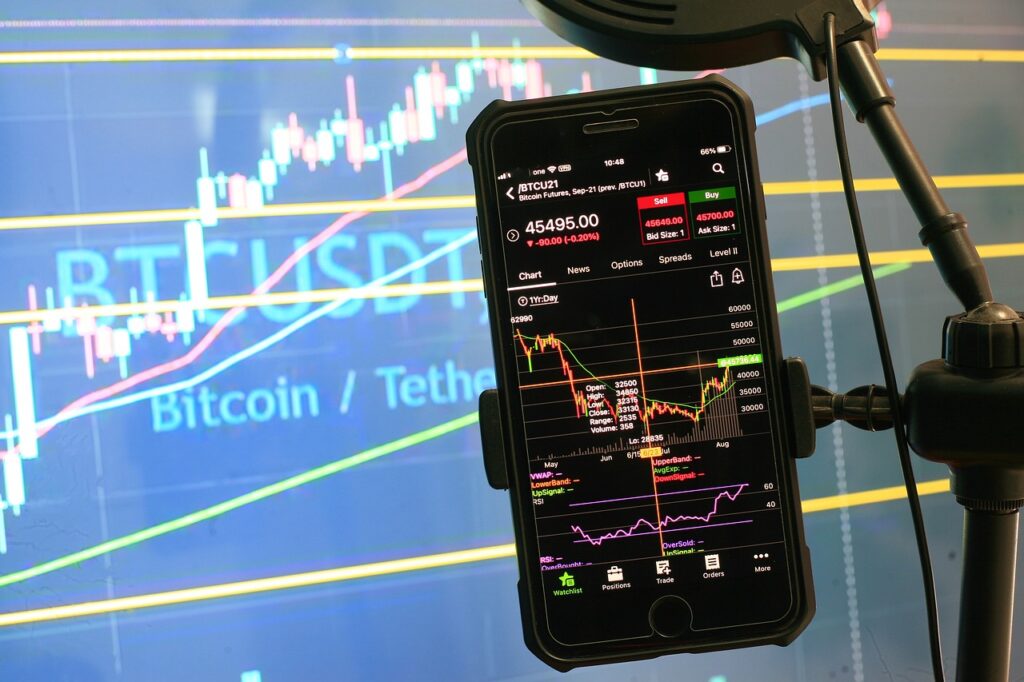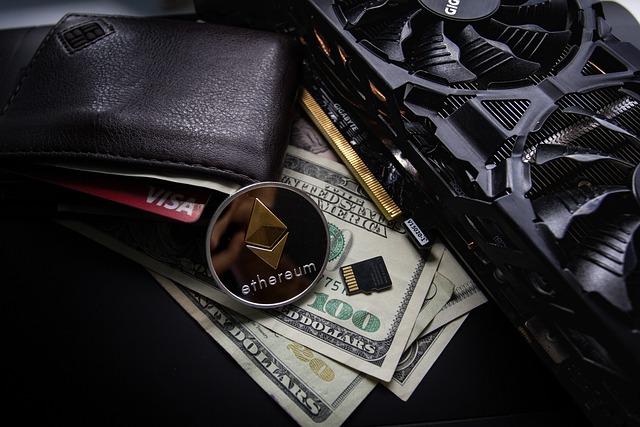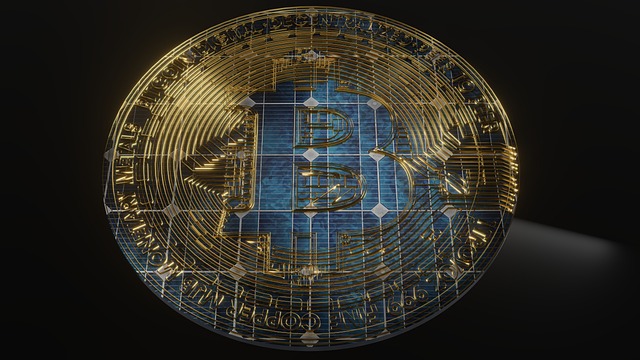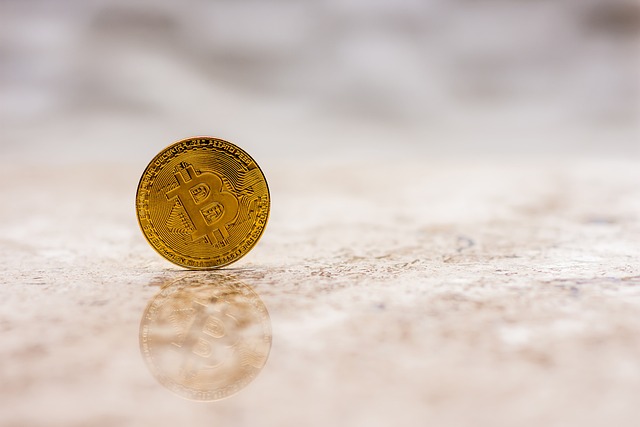Reaping the Benefits: A Guide to Decentralized Finance
Reaping the Benefits: A Guide to Decentralized Finance

What is Decentralized Finance?
Decentralized Finance, also known as DeFi, is an innovative and rapidly emerging concept that aims to revolutionize the traditional financial system. Unlike traditional finance, which relies on centralized intermediaries such as banks and financial institutions, DeFi utilizes blockchain technology to create a transparent and decentralized financial ecosystem.
At its core, DeFi allows individuals to access a plethora of financial services and products without the need for intermediaries. This means that users can borrow, lend, trade, and invest their funds directly from their wallets, eliminating the need for cumbersome paperwork and time-consuming approval processes. DeFi applications offer a wide range of services, including decentralized exchanges, lending and borrowing platforms, stablecoins, prediction markets, and much more. By harnessing the power of blockchain technology, DeFi aims to democratize finance, making it more inclusive, efficient, and accessible to all.
Understanding the Basics of Decentralized Finance
Decentralized finance, also known as DeFi, is a concept that is gaining traction in the world of finance. Unlike traditional finance, which is centralized and controlled by banks or other financial institutions, DeFi operates on decentralized networks, such as blockchain technology. This means that financial transactions and activities can be conducted directly between users, without the need for intermediaries.
One of the main advantages of DeFi is the potential for greater financial inclusivity. With DeFi, anyone with an internet connection and a digital wallet can participate in financial activities, regardless of their location or socioeconomic status. This opens up opportunities for individuals who may not have access to traditional banking services, allowing them to save, borrow, invest, and trade in a more accessible and affordable manner.
However, it’s important to note that DeFi is still a relatively new and evolving field. While it has the potential to revolutionize the way we think about finance, it also comes with its own set of risks and challenges. One of the main challenges is the lack of regulatory oversight, which can make it difficult to protect users’ funds and ensure transparency in transactions. Additionally, the fast-paced nature of the DeFi space means that there is a higher risk of scams and fraud, and users need to be cautious and do their own research before participating in any DeFi project.
• DeFi operates on decentralized networks, such as blockchain technology
• Financial transactions and activities can be conducted directly between users
• No need for intermediaries like banks or financial institutions
• Greater financial inclusivity with anyone having an internet connection and a digital wallet being able to participate in financial activities
• Opportunities for individuals without access to traditional banking services to save, borrow, invest, and trade more easily
• DeFi is still a relatively new and evolving field with its own set of risks and challenges
• Lack of regulatory oversight makes it difficult to protect users’ funds and ensure transparency in transactions
• Higher risk of scams and fraud due to the fast-paced nature of the DeFi space
• Users need to be cautious and do their own research before participating in any DeFi project.
The Advantages of Decentralized Finance
Decentralized Finance (DeFi) has gained significant attention in recent years, and for good reason. One of the most notable advantages of DeFi is its ability to provide financial services without the need for intermediaries. Traditionally, financial transactions often involve third parties such as banks, which can lead to high fees, delays, and potential privacy concerns. With DeFi, individuals can directly interact with a decentralized network, enabling faster and more cost-effective transactions. This not only increases efficiency but also empowers individuals to have full control over their financial assets.
Another key advantage of DeFi is its potential to promote financial inclusion. In traditional financial systems, individuals without access to banks or other financial institutions face barriers when it comes to managing their finances. However, DeFi platforms are designed to be accessible to anyone with an internet connection, allowing individuals from underserved communities to participate in various financial activities. By bypassing the traditional hurdles of banking, DeFi opens up new opportunities for individuals to access loans, earn interest on their savings, and engage in investments. This inclusivity can contribute to bridging the economic gap and promoting financial empowerment for individuals around the world.
Exploring the Different Use Cases of Decentralized Finance
Decentralized finance, or DeFi, is revolutionizing various industries by offering innovative use cases. One of the key use cases of DeFi is in the world of lending and borrowing. Traditional lending often involves intermediaries such as banks, which can result in high fees and limited access for individuals. With DeFi, these barriers are eliminated as anyone with an internet connection can participate in lending and borrowing without the need for a middleman.

Another exciting use case of DeFi is in the realm of decentralized exchanges. Unlike traditional exchanges that require users to trust a central authority to facilitate trades, decentralized exchanges leverage blockchain technology to enable peer-to-peer trading. This means that individuals can directly trade digital assets with one another without the need for an intermediary. Not only does this increase transparency and security, but it also reduces the risk of manipulation. Decentralized exchanges are gaining traction as more people recognize the potential of cutting out the middleman and taking control of their own assets.
How to Get Started with Decentralized Finance
Once you have made the decision to dive into the world of decentralized finance, getting started is easier than you might think. The first step is to educate yourself about the basics. Understand the key concepts and principles that underpin decentralized finance, such as blockchain technology, smart contracts, and peer-to-peer transactions. There are plenty of resources available online, including articles, videos, and tutorials, that can help you grasp these fundamental ideas.
Once you have a good understanding of the basics, the next step is to set up a digital wallet. A digital wallet is an essential tool in decentralized finance as it allows you to securely store, send, and receive digital assets. There are different types of wallets available, including desktop, mobile, and hardware wallets. Choose one that suits your needs and preferences. Make sure to follow the instructions carefully when setting up your wallet and remember to keep your private keys safe and secure. With your digital wallet in place, you’re now ready to explore the exciting world of decentralized finance.
The Risks and Challenges of Decentralized Finance
While decentralized finance (DeFi) presents many opportunities and benefits, it does come with its fair share of risks and challenges. One of the main challenges is the risk of smart contract vulnerabilities. Smart contracts are at the heart of DeFi platforms, and if there is a flaw or loophole in the contract’s code, it could lead to potential hacks or theft of funds. Therefore, it is crucial for developers to conduct thorough code audits and security reviews to minimize these risks.
Another challenge is the volatility of the cryptocurrencies used in DeFi. Digital assets such as Bitcoin and Ethereum can experience significant price fluctuations, which can affect the value of investments made in DeFi protocols. This volatility can lead to sudden and unexpected losses, especially if users fail to properly manage their risk exposure. Additionally, the lack of regulations in the DeFi space can make it susceptible to fraudulent activities and scams, putting investors and users at risk of losing their funds. Therefore, it is important for individuals to do their due diligence and thoroughly research the projects and platforms they choose to engage with in the DeFi ecosystem.
Navigating the World of Decentralized Finance Platforms
Decentralized finance platforms are the heart and soul of the decentralized finance ecosystem. These platforms enable users to access and participate in a wide range of financial services without relying on traditional intermediaries like banks. However, navigating this world of decentralized finance platforms can be a bit overwhelming for beginners.
One of the first things to consider when exploring these platforms is their reliability and security. As the decentralized finance space is relatively new and constantly evolving, choosing a reputable and secure platform is crucial. Look for platforms that have undergone rigorous security audits and have a solid track record. Additionally, keep an eye out for any potential vulnerabilities or risks associated with the platform. This information is often available through community forums and online discussions. By making informed choices and staying updated on the latest developments, you can navigate the world of decentralized finance platforms with confidence.
Key Players in the Decentralized Finance Space
The decentralized finance space is booming with activity, and there are several key players who are leading the way in this new financial frontier. One such player is Ethereum, the blockchain platform that has become the foundation for many decentralized finance applications. With its smart contract functionality and wide adoption, Ethereum has enabled the creation of various decentralized finance protocols, such as lending and borrowing platforms, decentralized exchanges, and stablecoins.
Another significant player in the decentralized finance space is MakerDAO, the organization behind the DAI stablecoin. MakerDAO operates on the Ethereum blockchain and offers a decentralized lending platform where users can lock their ETH as collateral and mint DAI stablecoins. This enables users to access liquidity without needing to sell their assets. MakerDAO’s decentralized approach and stablecoin have gained popularity within the decentralized finance ecosystem, providing stability and utility to users.
These are just a few examples of the key players in the decentralized finance space. As the industry continues to evolve, we can expect more players to emerge, bringing innovative solutions and expanding the possibilities of decentralized finance.
The Future Outlook for Decentralized Finance
The future of decentralized finance (DeFi) appears to be quite promising. With the rapid growth and increasing popularity of DeFi platforms, there is a clear indication that this trend is here to stay. As more individuals and institutions recognize the potential benefits of DeFi, we can expect to see a significant increase in its adoption and usage.
One of the main reasons why the future outlook for DeFi looks bright is the fact that it offers a more inclusive and accessible financial system.

Tips for Maximizing Your Gains in Decentralized Finance
When it comes to maximizing your gains in decentralized finance, there are a few key tips to keep in mind. First and foremost, it’s crucial to do your research and stay informed about the different tokens and projects in the market. By staying up-to-date, you can identify potential opportunities and make informed investment decisions.
Additionally, diversification is key. Instead of putting all your eggs in one basket, consider spreading your investments across different tokens and projects. This way, if one investment doesn’t perform as expected, you have other assets to balance out the risk. Diversification can help protect your portfolio and increase your chances of earning favorable returns.
Furthermore, it’s important to set realistic expectations and maintain a long-term mindset. While decentralized finance can be lucrative, it’s not a get-rich-quick scheme. Markets can be volatile, and it takes time for investments to bear fruit.

Lastly, staying disciplined with your investment strategy is crucial. It can be tempting to make impulsive decisions based on market hype or short-term gains, but this can often lead to losses. Stick to your investment plan and avoid succumbing to FOMO (fear of missing out). By staying level-headed and sticking with your strategy, you’ll be better positioned to maximize your gains in decentralized finance.
What is Decentralized Finance?
Decentralized Finance, also known as DeFi, refers to a system that allows individuals to access financial services without the need for intermediaries like banks. It leverages blockchain technology to provide transparent, secure, and inclusive financial solutions.
How can I understand the basics of Decentralized Finance?
Understanding the basics of DeFi involves grasping concepts like smart contracts, decentralized applications (dApps), and decentralized exchanges (DEX). These elements enable users to lend, borrow, trade, and invest in digital assets directly from their wallets, eliminating traditional financial institutions.
What are the advantages of Decentralized Finance?
Decentralized Finance offers numerous advantages, including lower fees, increased financial accessibility for the unbanked, improved privacy, and the ability to earn passive income through various DeFi protocols.
What are some use cases of Decentralized Finance?
DeFi has a wide range of use cases, such as decentralized lending and borrowing platforms, stablecoins, decentralized exchanges, yield farming, liquidity provision, decentralized insurance, and even decentralized prediction markets.
How can I get started with Decentralized Finance?
To get started with DeFi, you’ll need a cryptocurrency wallet, some digital assets (such as Ethereum), and an understanding of the specific DeFi platform you wish to use. It’s important to do thorough research and follow best security practices to protect your funds.
What are the risks and challenges of Decentralized Finance?
While DeFi offers great opportunities, it also comes with risks. Some of the risks include smart contract vulnerabilities, hacks, scams, and the potential for market manipulation. It’s crucial to be aware of these risks and exercise caution when participating in DeFi.
How can I navigate the world of Decentralized Finance platforms?
Navigating DeFi platforms requires staying updated on the latest developments, reading community reviews, and conducting due diligence on the platforms and projects you want to engage with. Start with well-established platforms and gradually explore others as you gain experience.
Who are the key players in the Decentralized Finance space?
The world of DeFi has numerous key players, including decentralized exchanges like Uniswap and Sushiswap, lending platforms like Compound and Aave, and stablecoin projects like MakerDAO. It’s a dynamic space with new projects emerging regularly.
What does the future outlook for Decentralized Finance look like?
The future of DeFi is promising, with continued growth and innovation expected. As more individuals recognize the benefits of decentralized finance, it is likely to become an integral part of the global financial ecosystem, providing financial services to the masses.
What are some tips for maximizing gains in Decentralized Finance?
To maximize gains in DeFi, it’s important to diversify your investments, research and understand the projects you invest in, stay updated on market trends, leverage analytics tools, and be mindful of the risks involved. Additionally, consider participating in yield farming and liquidity provision to earn additional rewards.
Todays Featured Product:
Buy, exchange and grow your crypto securely with a Ledger hardware wallet, combined with the Ledger Live app. It’s never been easier to keep your crypto safe and accessible. Buy direct from Ledger.com and get todays Special Offers Here.




